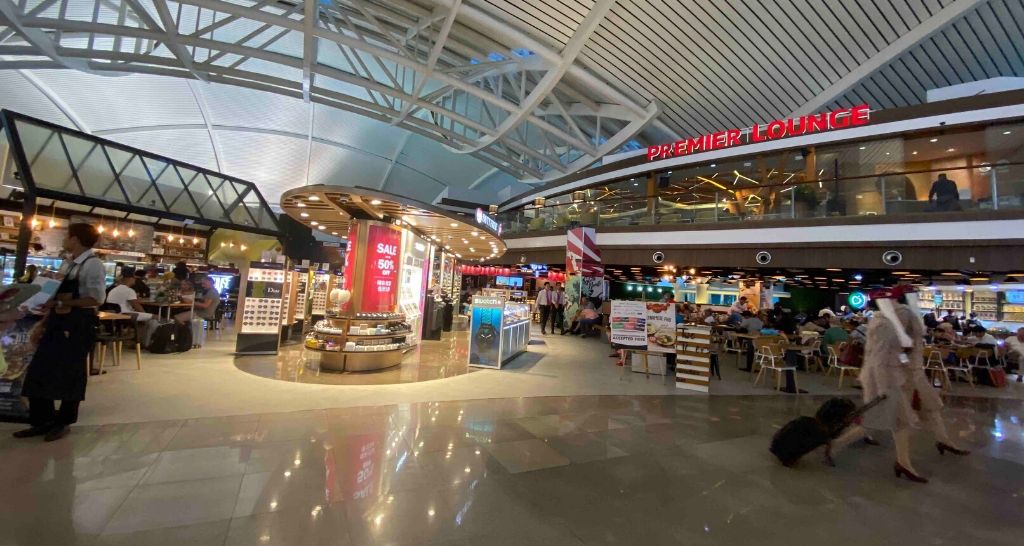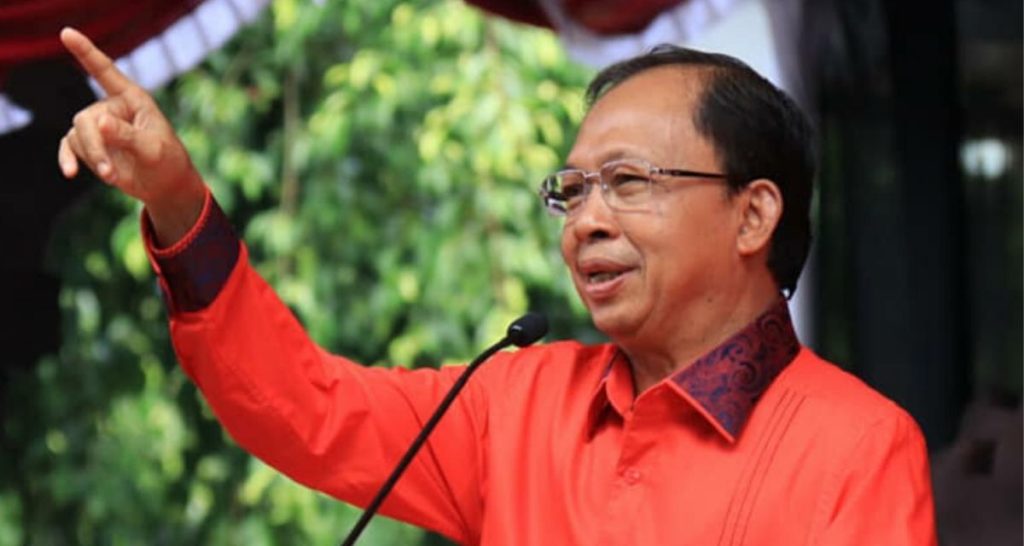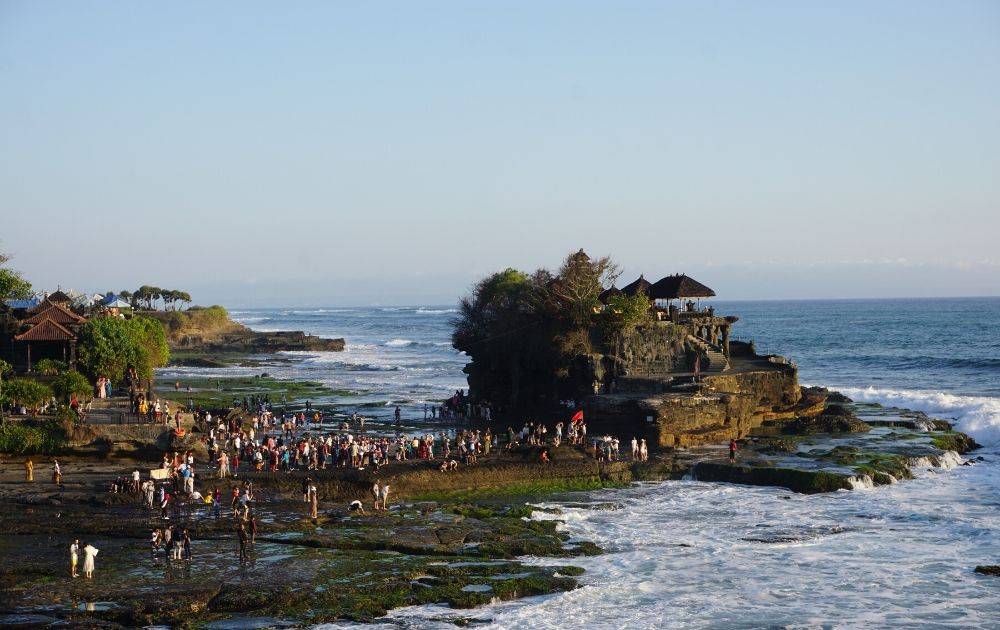Bonik Ingunau, who works as a tour guide and freelance driver, has been feeling the ripple effects of the international outbreak of the novel coronavirus here in Bali. Though officials have yet to announce any cases of COVID-19 on the island, the epidemic has created a rift in the global tourism industry; which plays a major role in the local economy.
“My guests from Italy had to cancel their trips, so that’s how [the situation] has impacted me directly. I also have clients from China who had to cancel their trips,” Bonik said.
With some of his guests having paid an advance, Bonik said he now has to give them refunds because of the unprecedented circumstances.
To be out and about in Bali these days is to notice that while not exactly empty, the streets are much less crowded. Areas notorious for their traffic congestion, from Kuta to Canggu, are easier to drive through. Cafes and restaurants are also hosting considerably fewer patrons than usual.
“I’ve been observing areas where it’s usually crowded such as Canggu, Seminyak and Kuta, usually there are a lot of tourists, but now there’s just a few. Roads that are usually congested are looking normal now,” Nengah Karya, a freelance taxi driver based in Denpasar, said.
Declining tourist numbers

In February, the Bali Immigration Office recorded 392,824 tourist arrivals, showcasing a 33 percent drop from January, after Indonesia imposed restrictions on travelers coming from and going to mainland China on Feb. 5.
Last year, Chinese tourists were the second-biggest group of foreign travelers visiting Bali, with nearly 1.2 million arriving through Ngurah Rai International Airport. The number of Chinese tourists decreased from more than 113,000 in January to less than 5,000 remaining on the island in February.
Bali Vice Governor Tjokorda Oka Artha Ardana Sukawati, or Cok Ace, previously said that the loss of Chinese visitors is costing the tourism sector in Bali about IDR50 billion (US$3.5million) per day.
Indonesia imposed further restrictions for travelers from South Korea, Iran and Italy on Mar. 8, responding to growing reports of COVID-19 cases in those countries. Indonesia, as of the publication of this article, have so far confirmed 19 cases domestically.
Almost six weeks since the World Health Organization declared the novel coronavirus a global health emergency and about a week following Indonesian government’s confirmation of its first domestic cases, it may still be hard to pinpoint the extent in which life has been affected by the decline in tourist numbers recently. However, there are already telltale signs of a major impact and tourism players say they are concerned.
“There are no Chinese tourists coming directly from China, and tourists from other countries, in this current condition, are doubtful or afraid of making trips and this is affecting Bali as a [tourist] destination,” Ketut Ardana, deputy chairman of Bali Tourism Board, told Coconuts Bali.
Ida Bagus Purwa Sidemen, executive director at the Bali chapter of the Indonesian Hotel and Restaurant Association (PHRI), echoed a similar sentiment.
“We can see that the increase of COVID-19 cases has impacted tourism in Bali, especially in the hotel business, quite significantly. This is evident from a drop in hotel occupancy, especially after the government announced travel bans of travelers from several countries,” Purwa said.
Purwa expressed hopes that tourism players will remain optimistic, noting the importance of cooperation and support to convince the world that Bali is safe for visitors.
“If it’s possible, [we hope] that companies will still avoid laying off their employees,” he continued.
With fewer guests arriving, there have been increasing concerns over potential layoffs. According to Ida I Dewa Made Rai Budi Darsana, secretary at the Bali chapter of the Federation of Independent Workers’ Unions (FSPM), several companies in Bali have already moved to impose unpaid leave on their workers.
“We highly object this treatment of the workers, because they still have challenging life burdens to think of,” Rai Budi said, stressing that companies should choose alternative policies that are more considerate.
‘We Love Bali’ movement

The Bali provincial government, for its part, has moved swiftly to try and lessen the blow on the local economy, efforts of which are now carried out under the “We Love Bali” movement. It comprises several programs, including special deals on tour packages and plans for a variety of festivals ranging from culinary and music to a surfing competition and even a marathon.
The provincial government will also be supporting familiarization trips, in which travel writers, YouTube personalities, bloggers, and so-called influencers will be invited to further campaign the “movement.”
“All of us, from big businesses such as hotels, restaurants, travel agencies to smaller businesses including tour drivers and sellers in tourist destinations are all affected by COVID-19,” Ardana said.
“All that we can do for now is to try our best to survive and pray that COVID-19 cases will be resolved soon,” he continued.
Bonik, the tour guide, said that many of his guests wanted to go to Bali but are afraid of being caught amid travel restrictions and unable to return to their home countries. For the time being, he hopes that the government can be transparent and continue to provide timely updates of the novel coronavirus.
“Bali also needs to develop its other sectors, because Bali is much too dependent on tourism,” he said.


